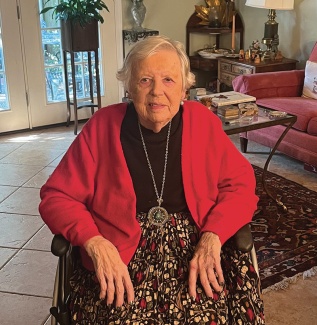103-year-old Elvera Sue Oppliger (SW ’53), who graduated with her Master of Social Work from Tulane in 1953, is no stranger to change. An avid activist and changemaker, she made waves in Louisiana politics on multiple fronts.
On top of her active roles in the civil rights and feminist movements, her career as a social worker would go on to change the future of mental health care in Louisiana. In 1963, President Kennedy signed into law a decree that mental institutions were to be replaced by community mental health centers, which would allow patients to live and receive care in their communities.
Oppliger helped to lead this transition in North Louisiana. She was one of the first three people employed at Shreveport’s brand-new mental health center in 1965. As the director of community services for the Shreveport Mental Health Center, Oppliger established community infrastructure to rehabilitate and socialize schizophrenic children who had previously been held in state institutions.
“We built support systems, set up social clubs in women’s groups and churches, and they met every week to help patients reintegrate to society,” Oppliger said. “We also helped high school and college students tutor the children.”































































